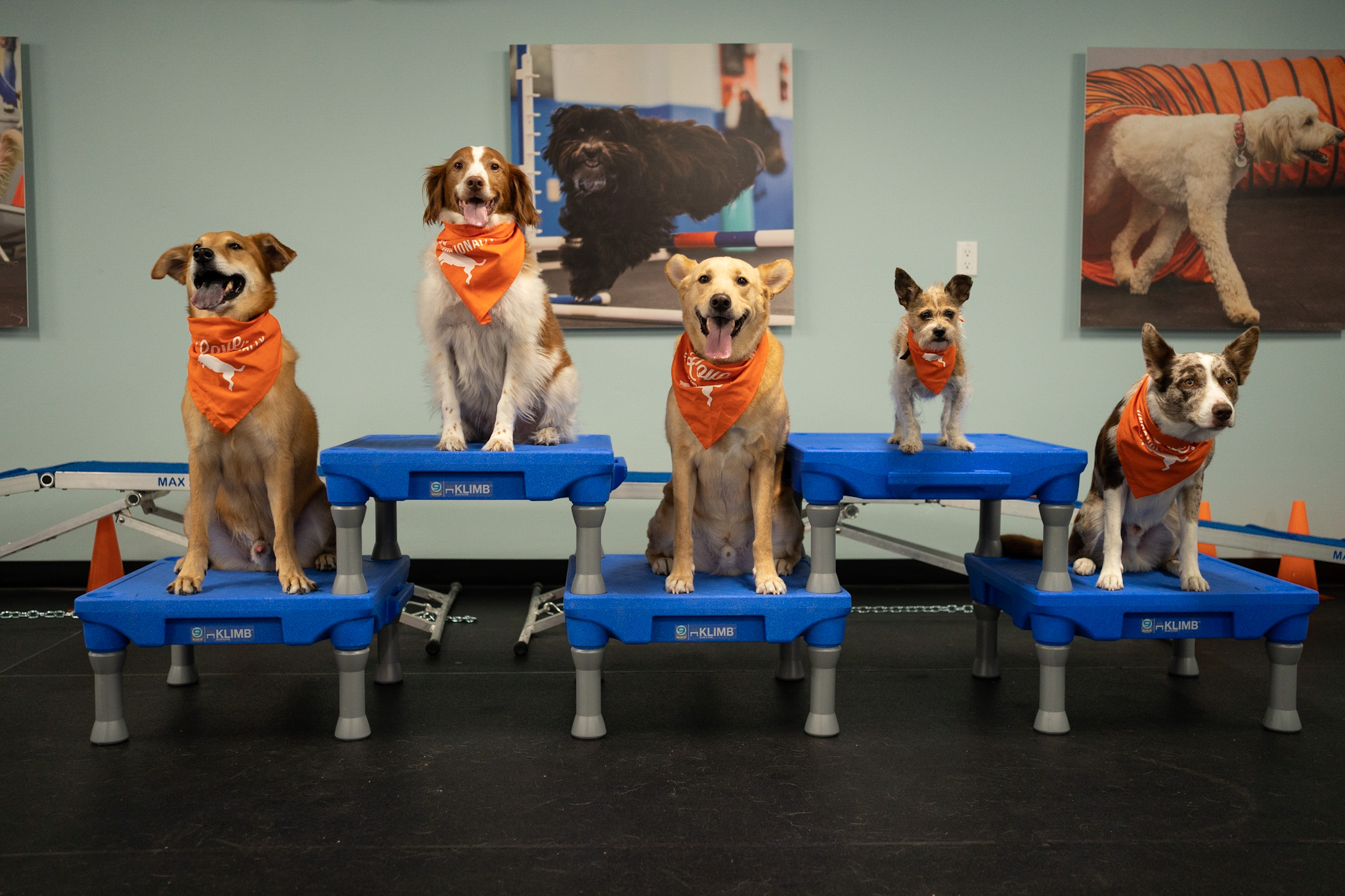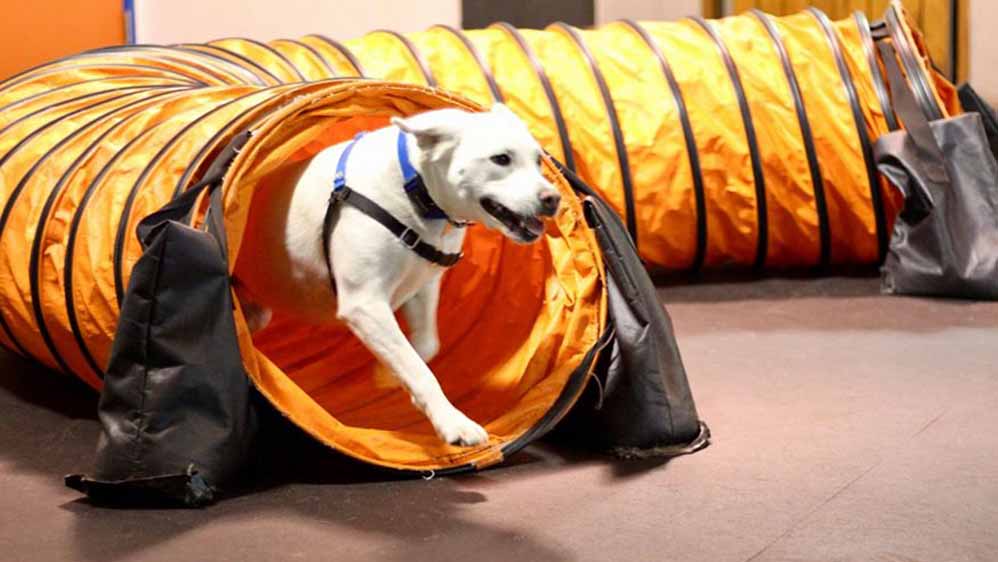Exploring Choices for Dog Training Charlotte: What You Need to Know
Exploring Choices for Dog Training Charlotte: What You Need to Know
Blog Article
Unlock Your Pet dog's Potential: Proven Pet Training Strategies for Success
Reliable pet training is a nuanced procedure that rests on comprehending canine actions and using clinically backed strategies. Dog training. By incorporating favorable support, developing clear commands, and prioritizing socializing, pet dog proprietors can grow a productive partnership with their family pets. However, obstacles commonly emerge that need customized services and a person method. Checking out these verified techniques exposes not just the capacity for behavioral renovation however also the deeper bond that can be created in between owner and pet dog. What necessary approaches must be considered to truly open your dog's capacity?
Recognizing Canine Behavior
Comprehending pet actions is necessary for efficient training and cultivating a positive connection in between pets and their proprietors. A thorough grasp of canine body language, vocalizations, and social interactions is important for identifying their demands and emotions. Dogs connect primarily via non-verbal hints; for instance, a wagging tail may show excitement, while pinned ears can signal fear or submission.

Furthermore, ecological variables play a significant function in shaping a dog's behavior. Changes in regular, new surroundings, or the presence of unknown people can lead to stress or anxiety in pet dogs. Identifying these triggers enables proprietors to alleviate unfavorable reactions and develop proper training methods.
Eventually, a deep understanding of pet dog actions lays the structure for effective training approaches, improving both behavior and the total bond in between the canine and its owner. dog training charlotte. This expertise is vital for promoting a well-adjusted, pleased canine friend
Positive Support Methods
Reliable training counts greatly on favorable reinforcement techniques, which have been shown to generate considerable cause shaping wanted habits in pet dogs. This method involves rewarding a dog for displaying details behaviors, consequently raising the probability that these actions will certainly be duplicated. Incentives can take numerous forms, consisting of treats, appreciation, playthings, or playtime, relying on what encourages the specific pet.

It is important to slowly phase out incentives as the dog learns the actions, transitioning to periodic support. This strategy keeps the actions over time while preventing dependency on continuous rewards. By concentrating on favorable reinforcement, instructors can cultivate a trusting partnership with their pet dogs, advertising a healthy and balanced and cooperative training atmosphere that enhances general obedience and performance.
Developing Consistent Commands
A basic element of effective pet training is the establishment of regular commands. Uniformity in commands is crucial for efficient interaction between the instructor and the dog. When commands are consistent, canines learn to connect details words with preferred actions, which speeds up the training process and boosts understanding.
To establish constant commands, it is important that all family participants utilize the very same terminology and gestures. If one person uses "sit" while an additional says "sit down," it can develop confusion for the canine. Select clear, distinctive words for commands and ensure everybody associated with the pet dog's training complies with these selections.
Reinforce commands through frequent practice, making certain that the canine gets adequate possibilities to react appropriately. When a canine efficiently adheres to a command, instant positive support should adhere to.
Last but not least, be client. Establishing regular commands takes time and initiative. With devotion and clarity, you will certainly assist your pet create a solid understanding of assumptions, inevitably causing a well-behaved friend.
Socialization and Exposure
Interacting socially a pet is essential for promoting a well-adjusted and confident companion. This procedure includes subjecting your dog to a variety of atmospheres, individuals, and other animals to develop their social abilities and versatility. Early socializing, preferably in between the ages of 3 to fourteen weeks, is critical, as it lays the groundwork for a pet dog's future habits.
During socializing, aim to supply favorable experiences in different settings, such as parks, active streets, and homes with other family pets. Introduce your dog to different stimulations, consisting of audios, sights, and scents, ensuring that each encounter is satisfying. This exposure aids mitigate concern and anxiety, leading the way for an extra durable canine.
Taking part in regulated group play sessions with other pets can also enhance social skills, instructing your animal proper interactions and boundaries. Always check your canine's convenience level during these experiences, progressively enhancing exposure as their confidence grows. Keep in mind, the objective is to produce a well-shaped family pet that thrives in varied scenarios, promoting an unified relationship with both humans and other pets. Focusing on socializing will substantially add to your pet's total happiness and actions throughout their life.
Overcoming Common Educating Challenges

An additional frequent concern is diversion. Canines may have a hard time to concentrate in unfamiliar or hectic settings. Gradually desensitize your pet dog to diversions by beginning training in a silent setting and slowly introducing even more stimulations as they become competent (Dog training). Favorable reinforcement strategies, such as deals with and praise, can preserve motivation and emphasis.
Additionally, behavior issues like jumping or excessive barking can come to be frustrating. Address these by teaching alternative behaviors, such as sitting calmly when welcoming visitors. Uniformity and perseverance are essential; strengthen desired behaviors continually and prevent abuse, which can lead to complication.
Lastly, recognize that each canine is one-of-a-kind, and training timelines may vary. Dressmaker your technique to your pet dog's specific demands, and look for expert support if required. With perseverance and the best techniques, conquering these obstacles can lead to a trained, happy canine friend.
Conclusion
Finally, unlocking a pet's potential requires an extensive technique that includes an understanding of canine behavior, the application of favorable support techniques, and the establishment of consistent commands. Early socializing and direct exposure to diverse environments additionally boost a pet's adaptability and confidence. By resolving usual training obstacles with tailored strategies and perseverance, a harmonious and cooperative partnership in between dog and trainer can be cultivated, eventually leading to a helpful resources mannerly buddy efficient in flourishing in various circumstances.
Effective canine training is a nuanced procedure that pivots on comprehending canine habits and utilizing scientifically backed techniques.Understanding pet actions is vital for effective training and cultivating a positive relationship in between pets and their proprietors.Efficient training counts greatly on favorable support methods, which have been shown to generate considerable results in shaping wanted habits in pets. When commands are uniform, pet dogs discover to associate details words with desired behaviors, which accelerates the training procedure and enhances understanding.
In verdict, unlocking a pet's potential requires an extensive method that integrates an understanding of canine habits, the application of favorable support techniques, and the establishment of regular commands.
Report this page